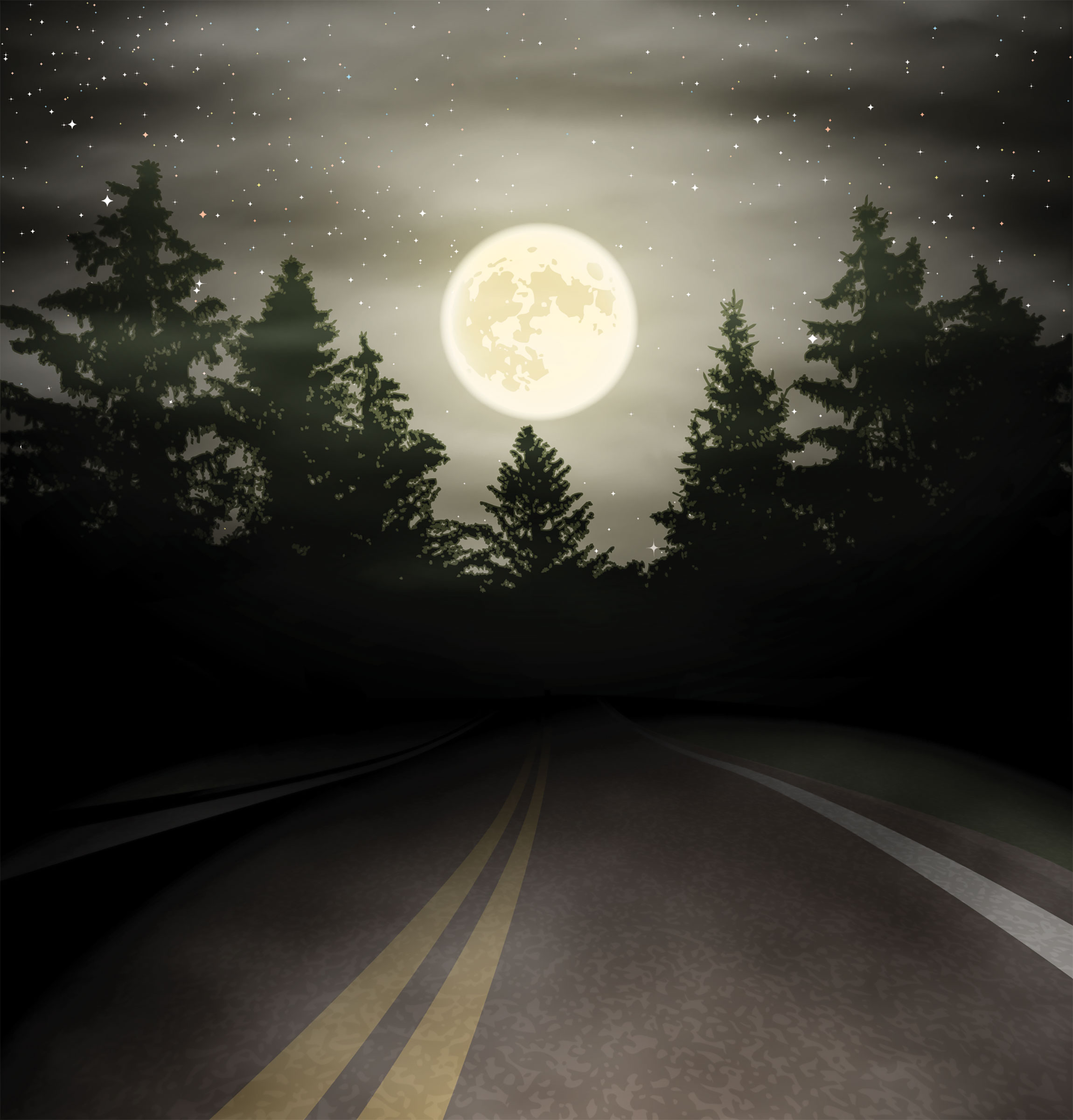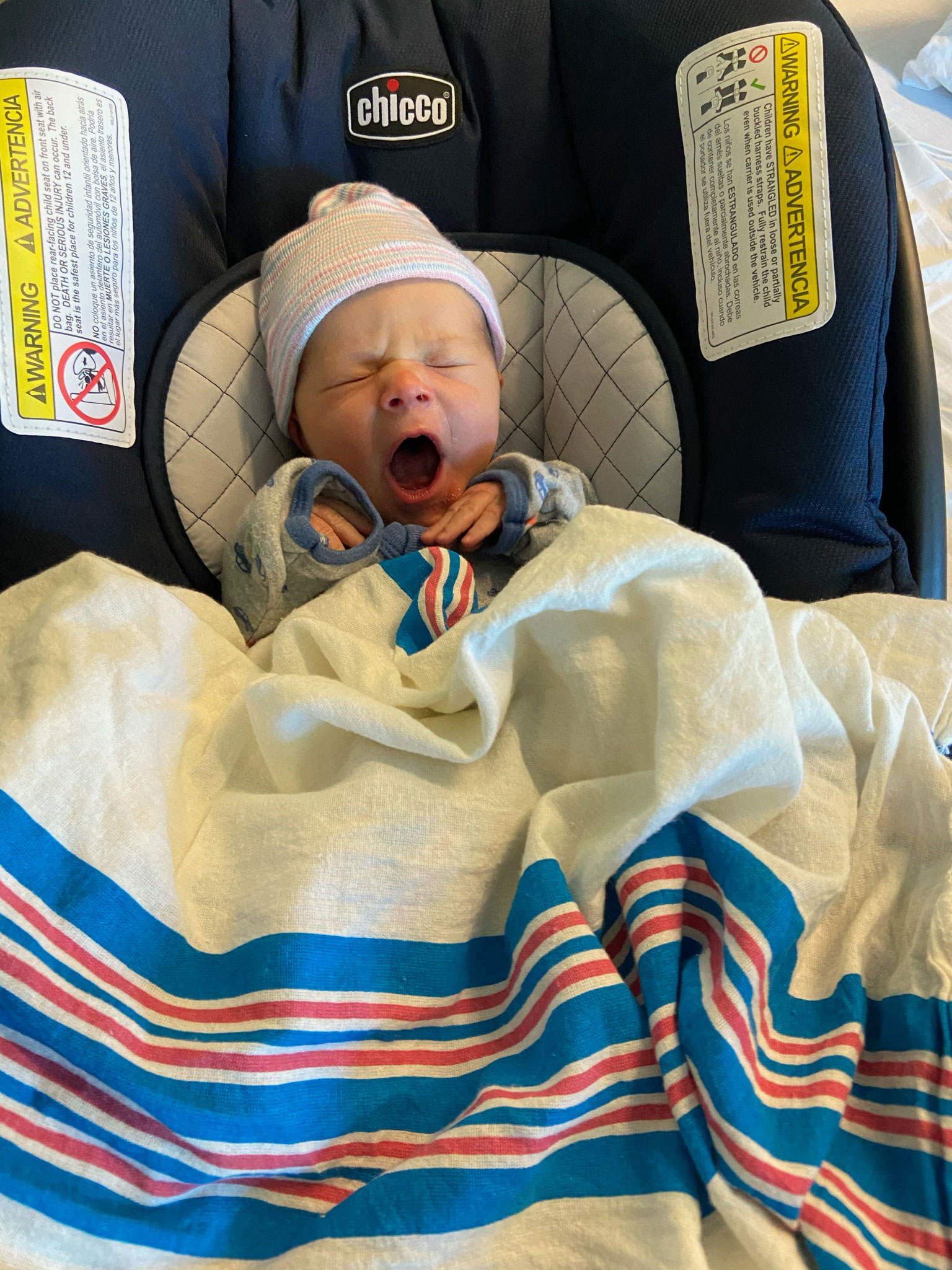
I’m breaking curfew.
Just like my parents and their parents before them, I’m driving my baby around so that he’ll finally go to sleep. It’s 10:45 p.m., his witching hour, and we’re re-entering lockdown here in California as our hospitals are overwhelmed. Milo was a pandemic pregnancy, a child of 2020, and I can’t fault him for the wailing. I’ve had enough too.
We’re going slowly up and down the East Bay hills. Tonight is a full moon or near it, and the empty streets feel emptier in the glow. The curfew isn’t just talk; as with wearing masks and social distancing, most of the Bay Area eagerly follows the rules. This is encouraging, of course, since we’ve been able to manage the worst of the virus until now, but it also means I had to FaceTime in for Milo’s prenatal appointments and was barely allowed in for his birth: I spent four days shuffling in and out of equally empty maternity hallways of Kaiser Oakland—the only floor not filling up—with nurses tired of me asking where, exactly, Kamala Harris was born.
Standing over his first tantrum and trying to fend off a wave of helplessness, my wife and I reminded ourselves that Milo will, with any luck, live to see the next century. We spared each other the list of all that seems so terribly out of our control, and, just maybe, still within his.

Now Milo is just a few weeks old, and as much as I know I’m his dad, I still feel the need to prove I’m not a stranger. I look in the rearview, angled into another mirror on the back headrest so that I can see him alternating between Muppet-mashing his features together and melting into a single open, screaming mouth. Tonight, I’m his Lyft driver.
But we aren’t the only ones out. Though the BART trains stopped running an hour ago, outside the del Norte station there’s a small crowd beside an idling bus with “mask required” on its destination screen. It is a quintessentially essential gathering: a security guard, a woman with green scrub pants beneath a heavy coat, and a cashier I recognize from the nearby Safeway. Later, we pass the disaster-proof line at the Taco Bell drive-through, a wine store doing brisk business, and the parking lot for the closed Home Depot still half-full. Despite the colder weather, there are pockets of homeless tents and makeshift shelters for whom orders to stay inside remain our state’s shameful absurdity.
I’m open to anything promising that looking ahead isn’t foolish, that we aren’t all in it for ourselves.
Last week, during a particularly long and riotous cry, we were at a stoplight and a swear-to-god limo pulled in next to us. The windows were up, but you could hear the music and laughter pulsing inside and see shadows backlit with colored lights, and it was easy to imagine everyone inside thinking only of themselves. My rising indignation carried with it a weird tingle of jealousy. This was once the breaking of curfew that felt essential – my choice to stay out late and take my chances, to live my life because it was mine.
But I am not the same person I was two decades ago, or two weeks ago, or even in March, and I’m tired. I have the piece of paper from our last doctor’s visit advising parents to take a soothing drive—no mention of a pandemic—on the seat next to me. Official documentation, I tell myself, just in case we’re stopped. Broken down to my essential function of caring for someone else and driving on streets this empty night after night has made it tempting to believe everyone, at least everyone not partying in a limo, is out with a good reason. At this four-way stop, all of us waiting and inching and waving for the others to go, we’re trying our best. And I’m sure I’m not the only one who’s tired. I’m open to anything promising that looking ahead isn’t foolish, that we aren’t all in it for ourselves. Signs that, like the milestones on Milo’s one-sheet—he will lift his head, he will start to smile—we can mark the small but significant moments as we find a way to keep going.
In the back seat, his crying stops. We turn into the neighborhoods, and I jerk the car to the left as a deer bolts through the lane and ambles along the road for a moment before ducking back into the undergrowth. I slow to a crawl, knowing they often travel in families and they do not divide up the nighttime outings between parents, odd days and even. The persistent drought and the Mars-red skies of apocalyptic fires have driven the deer and wild turkeys down from the hills. They are reminders of the new normals that will outlast a vaccine.
I pull back into our driveway and let the lights play on the garage. I’m home, but now the one I need to tiptoe around and keep asleep is behind me. He squirms and squeaks and I freeze. I let the quiet, the calm we all took for granted, settle back over us. I wait until I’m sure, and then we head inside.
More Must-Reads from TIME
- Breaking Down the 2024 Election Calendar
- How Nayib Bukele’s ‘Iron Fist’ Has Transformed El Salvador
- What if Ultra-Processed Foods Aren’t as Bad as You Think?
- How Ukraine Beat Russia in the Battle of the Black Sea
- Long COVID Looks Different in Kids
- How Project 2025 Would Jeopardize Americans’ Health
- What a $129 Frying Pan Says About America’s Eating Habits
- The 32 Most Anticipated Books of Fall 2024
Contact us at letters@time.com